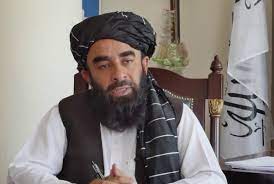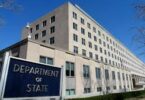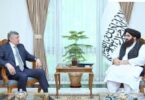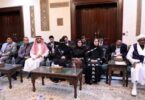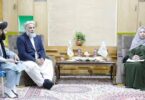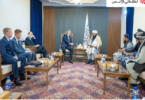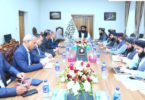KABUL (TOLOnews): The Islamic Emirate’s spokesman Zabiullah Mujahid said that Iran President Embrahim Raisi’s remarks regarding the Helmand water treaty will affect the political relations between Kabul and Tehran.
“The Iranian officials should first gather facts about the water of Helmand and then mention their demands with the appropriate words. If reality is not considered, and such statements are made, the political status between the people of the two Muslim countries could be harmed,” Mujahid said in an earlier statement in reaction to Raisi’s remarks.
The Islamic Emirate is committed to the water treaty of Helmand signed in 1973 between Afghanistan and Iran, Mujahid said.
Mujahid said that the amount of water has dropped in the Helmand river.
“The words which the Islamic Emirate uses are based on reality. You see the level of the water, and this should be acknowledged… anyway, we still prefer negotiation in this regard, but threats and using inappropriate words is not benefitting either side,” Mujahid said.
Meanwhile, Iran’s foreign minister, Hossein Amir-Abdollahian, referring to the Helmand water treaty, said on Twitter that he asked the Islamic Emirate’s acting foreign minister Amir Khan Muttaqi to provide an opportunity for a visit of a technical team to measure the amount of water, but the Islamic Emirate has yet to facilitate it.
He said the measuring of water is a technical visit not a political statement.
“Our immediate demand is that our technical team should visit Kajaki dam and then a decision will be made based on whether water exists in the dam or not. The President instructed us with extraordinary orders, particularly in recent months,” Abdollahian said.
According to the treaty, Afghanistan is committed to sharing water from the Helmand River with Iran at the rate of 26 cubic meters of water per second, or 850 million cubic meters per annum.
“Whenever a normal year is disrupted by lack of rainfall and there is an imbalanced situation in the amount of water in the Helmand river, the right of water of Iran also decreases,” said Najib Aqa Fahim, water analyst.
The Helmand water treaty has recently become a controversial issue amid a La Niña phenomenon that has been threatening Afghanistan for three consecutive years.

